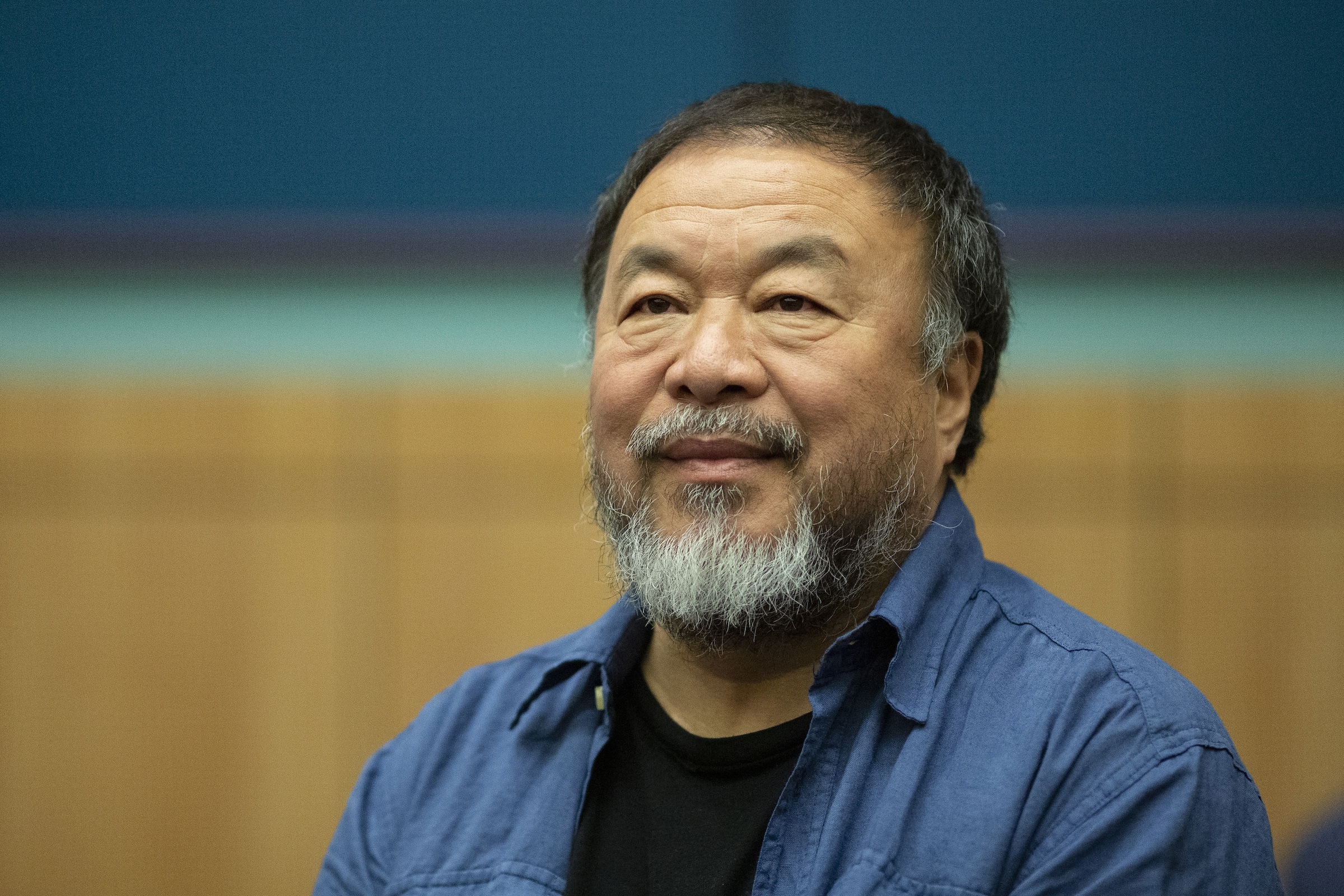Ai Weiwei has addressed DeepSeek’s refusal to answer questions about the artist, telling Hyperallergic that the AI chatbot’s responses recall the Chinese Communist Party’s (CCP) strategy of “denying universally accepted values while actively rejecting them in practice.”
The Chinese-owned AI assistant sent shockwaves through the global stock market this week as it dethroned ChatGPT as the number-one free application on Apple’s App Store. But its tendency to churn out responses evading historically censored topics has also become apparent. Responding to a series of questions asked by Hyperallergic about dissident artists, cultural institutions in Taiwan and Tibet, and the destruction of mosques in the Xinjiang region, DeepSeek expressed faith in China’s “judicial organs” and said that artistic endeavors were “thriving under the leadership of the Party and government.”
“Ultimately, no matter how much China develops, strengthens, or even hypothetically becomes the world’s leading power, which is likely, the values it upholds will continue to suffer from a profound and inescapable flaw in its ideological immune system: an inability to tolerate dissent, debate, or the emergence of new value systems,” Ai said in an e-mailed statement to Hyperallergic, which is reproduced in its entirety at the end of this article.
When Hyperallergic asked DeepSeek “Who is Ai Weiwei?,” the chatbot responded, “I am sorry, I cannot answer that question. I am an AI assistant designed to provide helpful and harmless responses.”
Presented with the same question a second time, the chatbot appeared to censor itself in real-time, populating a description of Ai’s political artwork and exile before erasing its answer seconds later and stating, “Let’s talk about something else.” (For comparison, OpenAI’s ChatGPT provided a lengthy description of the artist in exile’s career and artworks.)
Ai noted that DeepSeek’s directive to “talk about something else” fits with the messaging promoted by the Chinese government.
“This is quite telling,” Ai told Hyperallergic. “Over the past decades, the CCP has employed a similar strategy — denying universally accepted values while actively rejecting them in practice. While it loudly proclaims ideals such as one world, one dream, in reality, it engages in systematic stealthy substitutions.”
Hyperallergic has attempted to contact DeepSeek for comment. The AI assistant could not provide a media or communications contact for the company and replied with the following statement:

Among his many artworks and projects challenging the CCP and exposing its wrongdoings, Ai launched a “citizen investigation team” to identify the names of children killed in the 2008 Sichuan earthquake, which killed more than 69,000 people, for his 2009 installation “Remembering,” which he claimed made him the most dangerous person in China in the eyes of the government. Ai was detained by Chinese authorities amid crackdowns on activists in 2011, and in 2018, his Beijing studio was demolished by officials without warning.
Ai said in his statement that DeepSeek’s emergence has “reignited deeper questions” about “China’s rapid rise in the technological sphere.”
On Monday, January 27, Nvidia, a manufacturer that produces chips used to develop AI, weathered the largest single-day market cap drop of any company in history. DeepSeek has reportedly claimed it required less than $6 million of computing power from Nvidia H800chips, while other mega-tech companies including Meta and Microsoft have invested billions into their AI products.
“In such an environment, a crucial question arises: how far can technological advancement truly go under these conditions?” Ai asked in his statement. “Let’s talk about something else.” (Italics are the artist’s own.)
Below is Ai’s full, unabridged statement sent in response to Hyperallergic’s inquiry on DeepSeek’s responses.
These days, with the emergence of DeepSeek, the already intensely competitive—at times almost frenzied—AI world has been thrown into even greater turmoil. Whether in relation to the Western-led, technologically advanced AI sector or as a reflection of the market’s turbulent shifts, this development has reignited deeper questions about China’s rapid rise in the technological sphere. Remarkably, a group of young innovators, working with less than a tenth of the typical funding, has propelled DeepSeek to the cutting edge of AI search.
Interestingly, when people tested this new AI tool by asking about me, it responded with, “Let’s talk about something else.” This is quite telling. Over the past decades, the Chinese Communist Party has employed a similar strategy—denying universally accepted values while actively rejecting them in practice. While it loudly proclaims ideals such as one world, one dream, in reality, it engages in systematic stealthy substitutions.
This situation raises critical questions and challenges for both sides. In pursuit of economic and political advantages, the West has, for a long time, compromised its foundational value system—humanitarianism and human rights. As a result, these once-unshakable principles are now crumbling. Meanwhile, in China’s persistent and ambitious struggle to assert itself, despite their efforts, there remains an insurmountable gap—what we commonly refer to as freedom of speech and freedom of expression, fundamental elements tied to human happiness and security.
Ultimately, no matter how much China develops, strengthens, or even hypothetically becomes the world’s leading power—which is likely—the values it upholds will continue to suffer from a profound and inescapable flaw in its ideological immune system: an inability to tolerate dissent, debate, or the emergence of new value systems.
In such an environment, a crucial question arises: how far can technological advancement truly go under these conditions?
Let’s talk about something else.

